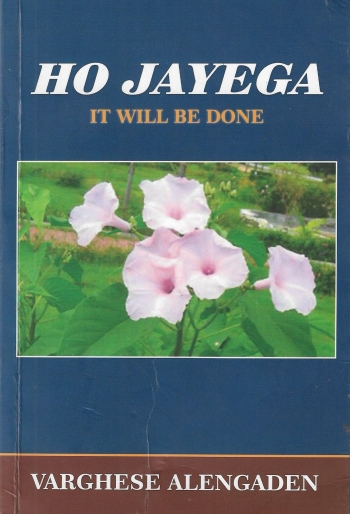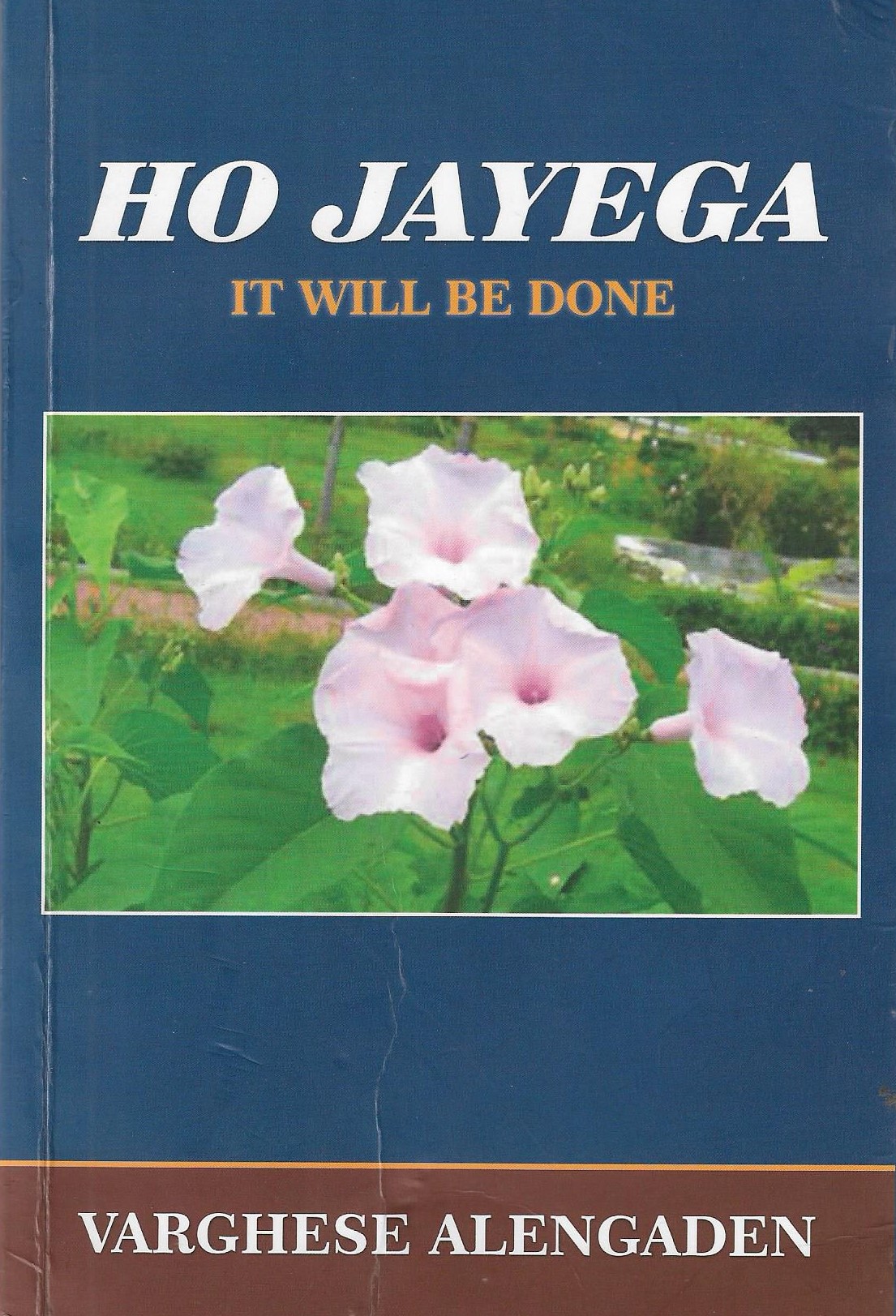
.jpg) Mathew Paikada
Mathew Paikada

Fr. Varghese Alengaden is unlike any other priest; he is unlike any other motivational speaker, animator, trainer or writer. So his autobiography too should be unlike any other memoirs. The proof is in the pudding. His recently released ‘life story’ Ho Jayega (It will be Done) is a testimony to an inspiring life devoid of any facade or pretense. More than a chronological presentation of his life spanning over six decades, it presents his vision and mission; it brings out, in black and white, the life of a man of revolutionary ideas; it showcases the commitment of a person who is steadfast to a cause.
Fr. Alengaden has no qualms in admitting that he too started off as any other boy in a Catholic family which unwaveringly followed rituals and took part fervently in Church festivals and celebrations. “I was a fanatic for rituals,” he admits. He began his ministry like any other priest. He was a stickler for rules. He would even admonish girls and women for not covering their heads in the Church. But the clock turned full circle when he influenced several nuns of congregations to shift from their frock to saree. But that happened many years later.
A paradigm shift came in his life when things changed in Sagar diocese, to which he belonged, with the arrival of a new bishop. He was shifted around from parish to parish; transferred from one remote village to another village, not for any wrong-doing but for working with the villagers and introducing novel ways of missionary life. He wanted to be ‘a shepherd with the smell of the sheep’, an ex
A big churning was happening in his life. For weeks and months he spent time in introspection. Instead of establishing and expanding the institutional Church, he decided to launch a new model of evangelization, a civilization of universal love. To put it in his own words: “I abandoned the old wineskin and adopted a new wineskin.”
From then on, we see Fr. Alengaden a changed man: A shift from a life of religiosity to spirituality. He decided to practice spirituality beyond all rituals and religions. He started considering ‘identity as a human being above all other small identities.’ It was during this churning in his life, he got an opportunity to lead a delegation of young people from India to Taize, a community in France, in 1989 for two months. It is a community where thousands of people from different nationalities belonging to all Christian denominations come together for weeks or months for experiencing a new life. They spend time in silent prayer and meditation. They work together as there is no other income for the community. It is here he got the great learning that one can attain higher level of spirituality beyond rituals of organized religions.
Fr. Alengaden came back with the determination to start his dream project with the youth after the model of Taize. He says it was God’s providence that the bishop of Indore diocese welcomed the idea of launching the new mission. This was the beginning of Universal Solidarity Movement, a unique community-living with many trend-setting practices, from a small rented apartment in Indore on July 16, 1993. As the Movement gained momentum, it shifted to a bigger accommodation in the city.
Here students come for enlightened leadership training lasting for a week. Teachers and principals too attend similar camps where practical modules of value education are imparted through various mediums. It is also a place where nuns, priests and bishops too come for Christo-centric retreats. All of them share similar rooms, halls and dining places. Every participant is a guest and is taken care of with great attention.
It is only at USM that one gets to see that every staff member from guards to cooks to drivers to office staff are treated at par with respect and dignity. The hospitality one gets to experience is unique. It is a rare sight to see the members of the USM community, often led by Fr. Alengaden himself, present at the gate to receive the participants of various programmes. The same is the welcome given to any guest who reaches here.
One gets to feel the blending of Gospel values with Gandhian values, page after page, in his writing. Nicknamed Gandhi by his peers during his seminary life, he continues to be an ardent follower of Gandhiji and Gandhian values. The annual programmes like Knit India and National Peace Convention are meant to spread the core Gandhian values and principles. The USM premise in Indore is replete with quotes from Gandhiji, Martin Luther King Jr and many others, besides Fr. Alengaden’s own slogans.
The Church, which needs new ideas and ways to touch the lives of people, has a lot to learn from this revolutionary priest. Even during his active priestly life, he had shown that the mission should be with the people’s participation and he proved it by establishing a successful mission in a village where not a single Christian was present. But he hardly got any support from the authorities and he had to close it down.
He elaborately presents his view that people will be more spiritual practicing morals and ethics rather than following rituals and ceremonies.
His way of treating the USM community of office staff, kitchen employees, housekeeping staff, guards, drivers and others as partners, sharing the meal on the same table, should be an eye-opener for the Church authorities. His vision and approach have much meaning at a time when the Church has started a two-year Synod on Synodality with the motto of ‘journeying together with the people of God’. On equal measure, Fr. Alengaden’s life is a challenge to the Church which continues to value traditions, conventions and rituals more than Christo-centric values.
This book opens a new, and rewarding, path to students, teachers, principals, parents, priests, nuns, bishops and people of all faiths.
(Published by Universal Solidarity Movement of Value Education for Peace, R-847, Mahalakshmi Nagar, Indore, Madhya Pradesh. Telephone: 0731-4072057; e-mail – usmindore93@gmail.com)